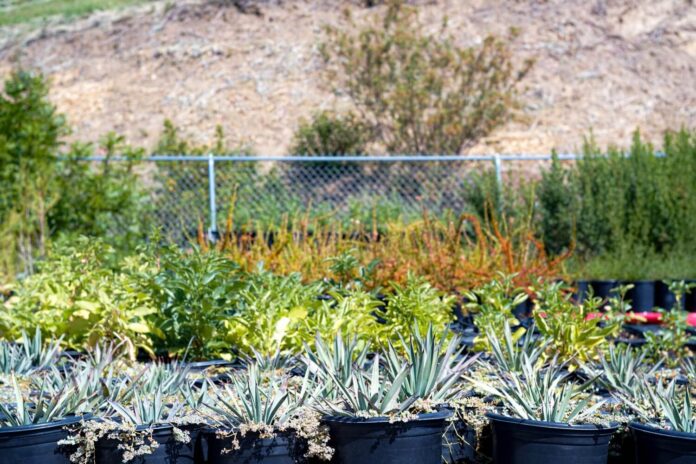
When he retired from teaching at Eagle Rock Jr./Sr. High School, Scott Wilson dedicated himself to planting five trees a day in the community for the rest of his life, a project which eventually coalesced into North East Trees, according to the organization’s executive manager, Mark Kenyon. Founded by Wilson in 1989, North East Trees is a nonprofit that plants trees and leads greening projects across LA, according to Kenyon. A year before Wilson’s passing in 2011, Kenyon said they both estimated that the actual number of trees Wilson was responsible for was at least 10 a day since his retirement. Since its founding, North East Trees has planted 350,000–450,000 trees throughout LA and given away a similar number to LA residents, according to Kenyon. He said the organization has planted most of the trees on York and Eagle Rock Boulevard and designed and established many of the parks along the LA River.
“If you’re anywhere near Oxy or anywhere in Highland Park, Eagle Rock, Lincoln Heights, El Sereno, Boyle Heights — most of the street trees that you see were planted by our organization, and many of the residential trees were distributed by our organization,” Kenyon said.
North East Trees has recently partnered with Occidental’s Urban & Environmental Policy Institute (UEPI) to plant trees at Loretto Street School and train local high school students as tree ambassadors who will distribute plants into the community, Kenyon said.
According to Diego Zapata ‘19, manager of the North East Trees nursery, everything about North East Trees is locally based and community informed — from its founding to its operation and broader goals.
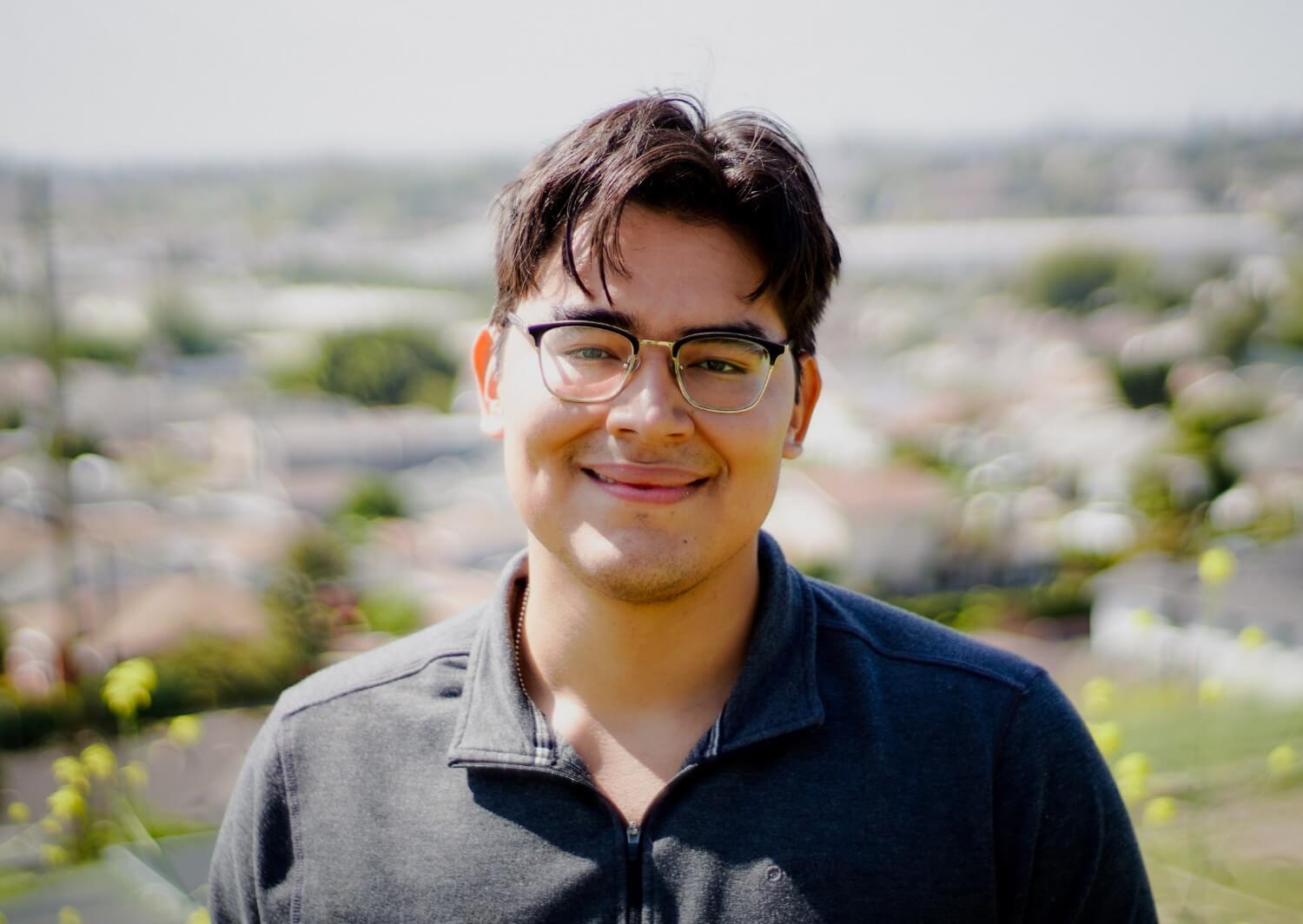
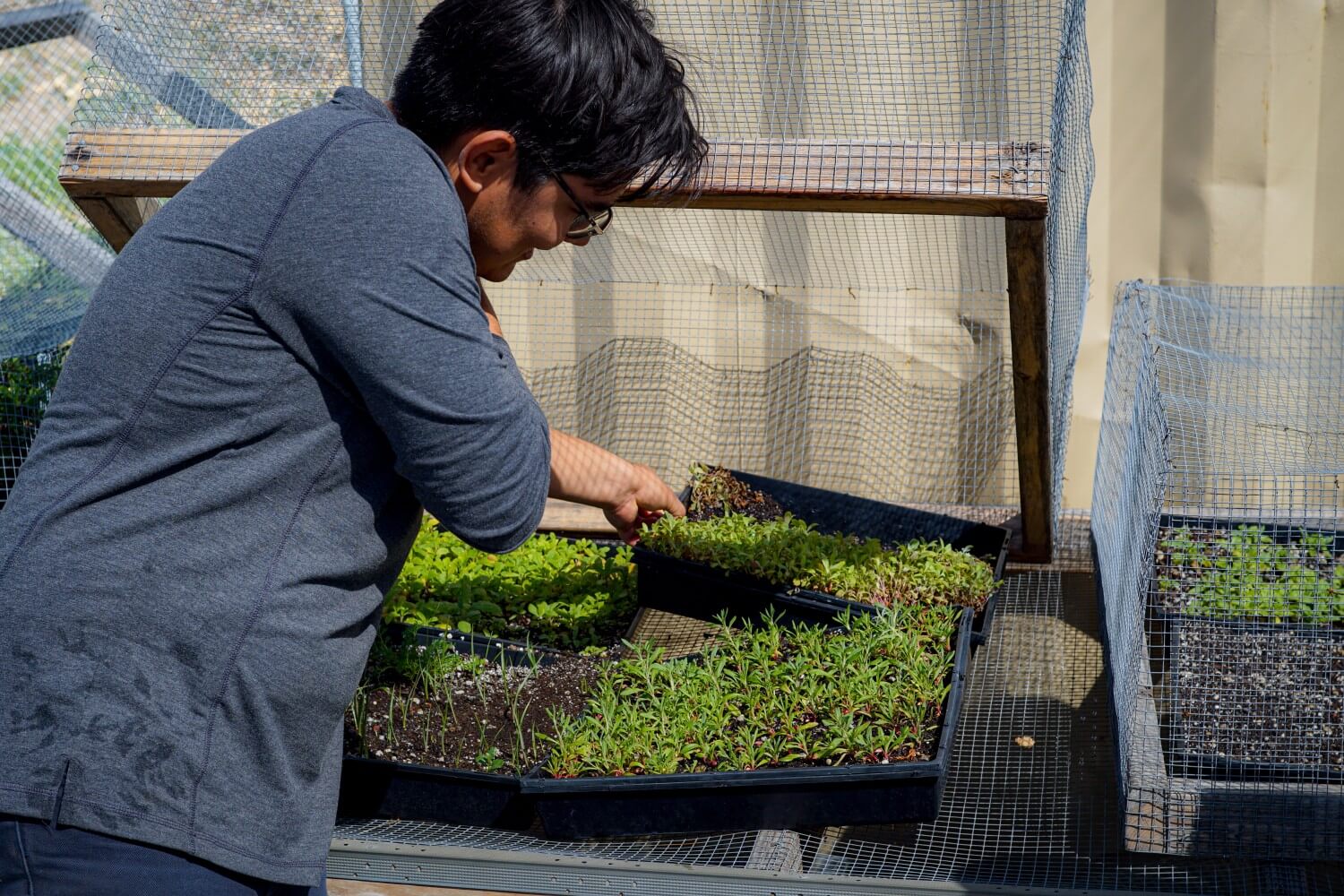
One of the things that distinguishes North East Trees from other environmental nonprofits in LA, according to Zapata, is that it is one of the first to center the needs of underserved communities. He said many environmental nonprofits focus on reforestation and coastal restoration, which are typically priorities of affluent communities. North East Trees, on the other hand, prioritizes the daily lives of people in urban spaces, especially those spaces lacking tree canopy, experiencing urban heat island effects and facing disproportionate impacts of pollution.
Reflecting the organization’s belief in a horizontally organized grassroots approach to urban restoration and greening, North East Trees is one of few environmental organizations in LA that prioritizes local input for projects and hires their staff from the community, according to Kenyon. The organization was one of the first to work on greening projects to incorporate greenery into urban spaces in LA housing projects, which often lack tree coverage, parks with amenities and native plants, according to Zapata.
“The communities around Ascot Hills — Hillside Village, Lincoln Heights, El Sereno, Boyle Heights, Ramona Gardens — they are all very underserved, traditionally disenfranchised communities, both in regards to resources and politically, and they also have decades and decades worth of environmental trauma and injustice,” Zapata said.
Ascot Hills, where the North East Trees nursery is located, used to be a private space of the LA Dept. of Water and Power, according to Zapata. Community members would have to get by a fence to access the space, and were heavily policed, he said. After successful community organization for use of the space as a public park, the continued push for access to environmental education and agency over the park led to the creation of the North East Trees nursery, Zapata said.
North East Trees is currently working with Legacy LA to restore Henry Alvarez Memorial Park in Ramona Gardens, Kenyon said. Ramona Gardens sits right next to two interstates, I-5 and I-10, and experiences an overwhelming amount of pollution from the hundreds of thousands of cars that use them daily, according to Zapata.
“[The residents] have a high risk of asthma … of all these sorts of illnesses that impact communities because of their adjacency to these freeways,” Zapata said.
Even within the goal of urban greening, the challenge of protecting the community remains a complex balancing act, especially considering concern over green gentrification. According to Kenyon, this includes the worry that bringing parks and amenities into communities could also bring in investments that end up displacing the very people the parks are meant to help, he said.
According to Zapata, almost everyone at North East Trees grew up in Northeast LA, which is important for the understanding of community. Zapata grew up in Lincoln Heights, just about a mile from Ascot Hills.
“We already come into the organization with this understanding of the community and its lived experience,” Zapata said. “And so it’s more meaningful and effective when we have that context.”
Melanie Guzman, an intern at the North East Trees nursery, grew up in Lincoln Heights and found the nursery through a social media page for Lincoln Heights residents. She said working at North East Trees has opened her eyes to how communities are suffering from lack of greenery, especially native greenery. The job is also an opportunity to help people, Guzman said, and to explore her interests in urban ecology, which she studies at University of California, San Diego (UCSD).
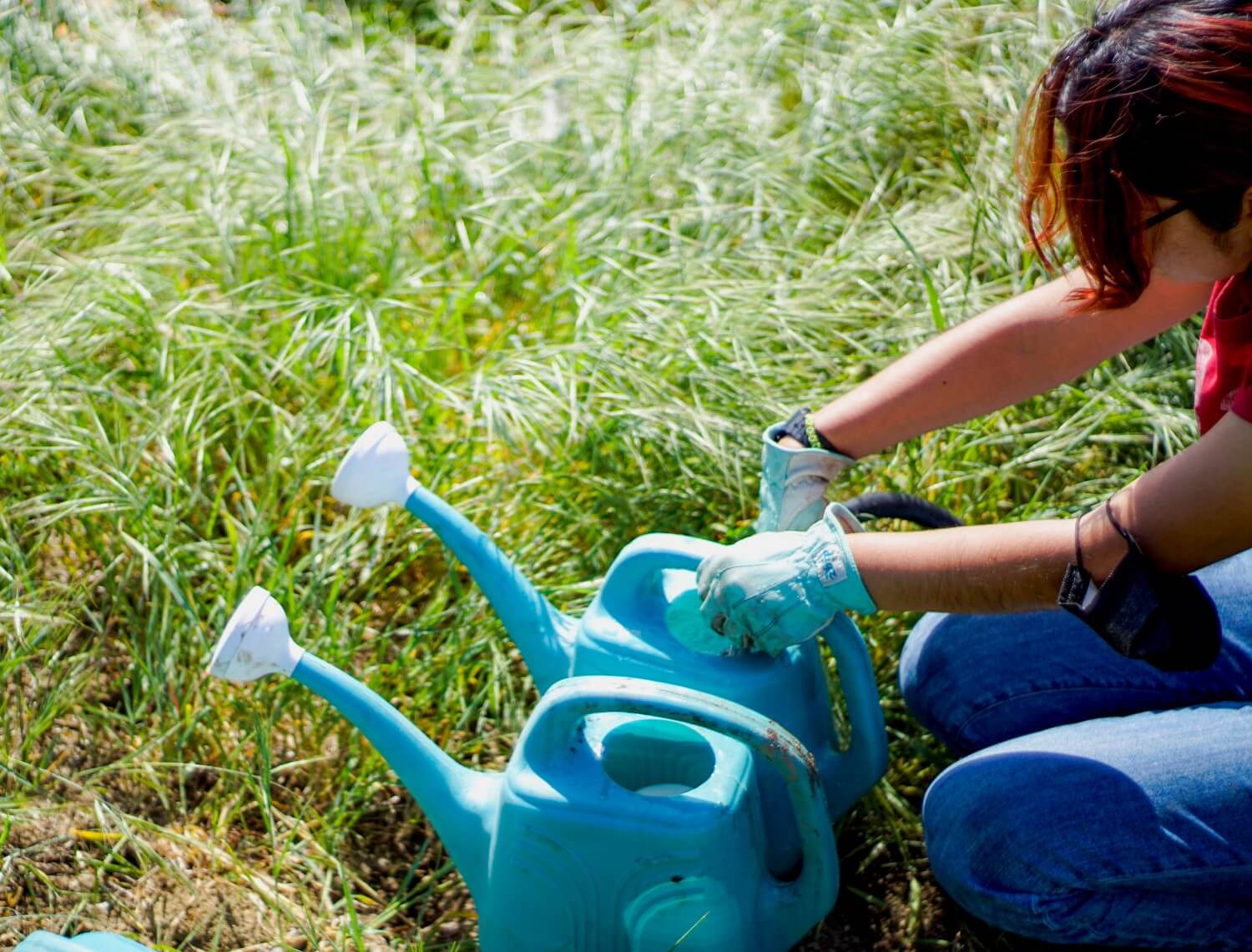
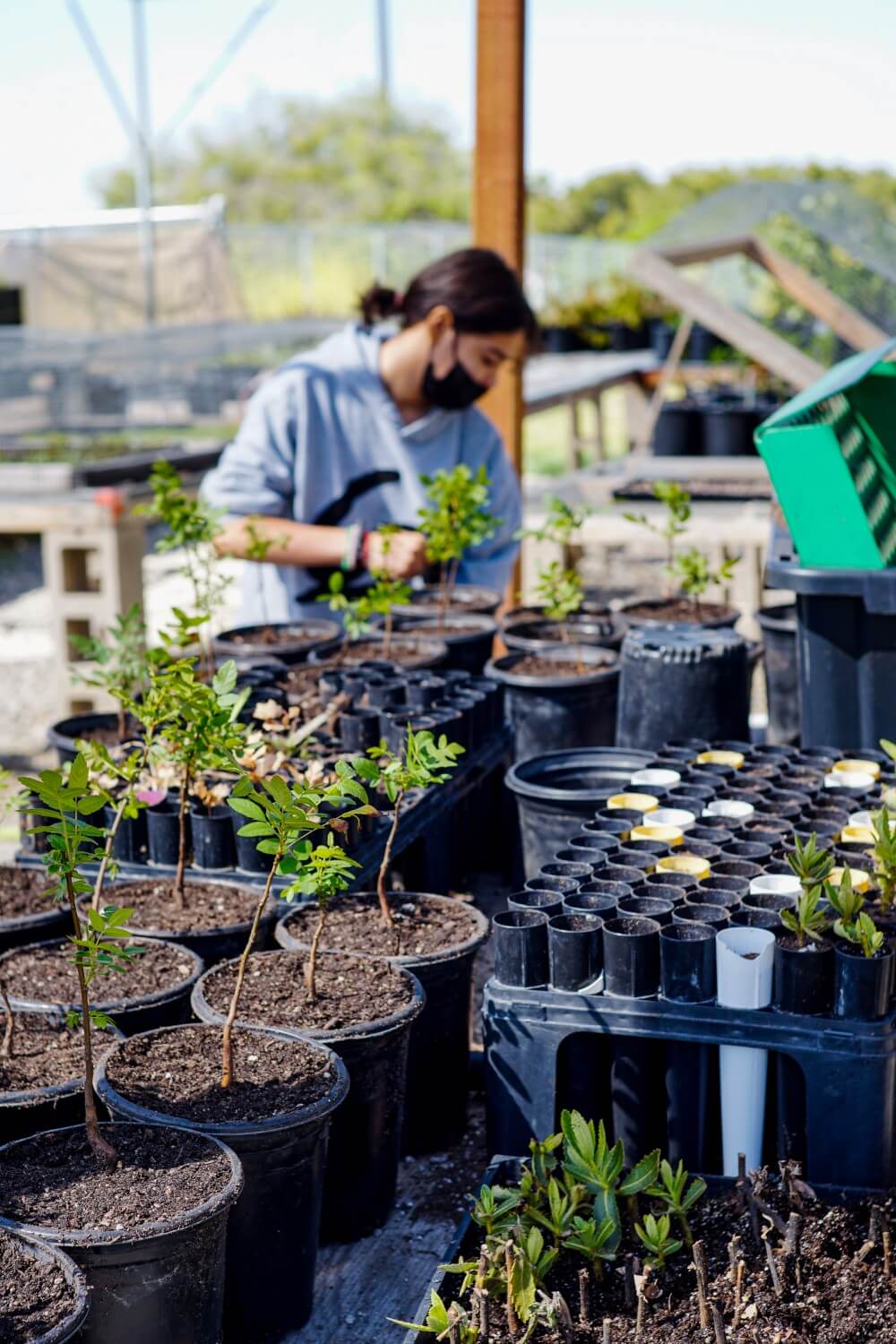
As the only youth-led nursery in LA where all staff are under the age of 24, the nursery serves as a pipeline to get young people interested in careers in conservation and environmental fields, according to Zapata. Giving youth the opportunity to connect with nature is also giving them the opportunity to realize their agency and connect with their communities, he said.
“By stewarding nature and organizing in your community, you also learn a lot about who you are and what you want to do,” Zapata said.
Zapata said that in his own childhood, the open spaces in his community were his only places of solitude, self-reflection and grounding, where he could find refuge from the troubles in the rest of his life. He said the reason he is a biologist now is his adjacency to Flat Top and Ascot Hills Park during his youth.
At the nursery, another focus is the preservation of LA’s biodiversity and the propagation of relic plant populations, according to Zapata. Most of the plants that North East Trees grows in its nursery come from native seeds collected at Ascot Hills Park and other open spaces in LA. If no one collects native seeds, that biodiversity is simply lost, Zapata said.
According to Zapata, the nursery gives away about a quarter of its output to community members. In addition to carbon sequestration, water filtration, stormwater diversion and the cultural significance that native plants hold, Zapata said he sees this as the way to overcome the habitat fragmentation threatening LA’s natural abundance of biodiversity.
“Because [residential neighborhoods] represent a huge footprint of land in our city, if we start introducing the biodiversity into people’s homes and start creating habitat corridors that connect all the parks that North East Trees worked with, we can start creating connectivity between all these habitats, and promote biodiversity and its movement through these parks,” Zapata said.
Just as the interconnection of native plant habitat is important, so too is the interconnection of the communities defending those habitats, according to Zapata. There are land battles all across LA — Poppy Peak in Highland Park, Eastern and Lombardy and Elephant Hill in El Sereno, Walnut Canyon in Glassell Park, Onteora Way in Eagle Rock, Flat Top in Lincoln Heights — and in that an opportunity for local communities that often operate individually to band together, according to Zapata.
“If you start thinking about all these open spaces as one unit – because they really are, they should be connected – we can start relating and empowering communities to support one another. And that has begun to emerge,” Zapata said. “And North East Trees is here to support in any way, shape or form.”
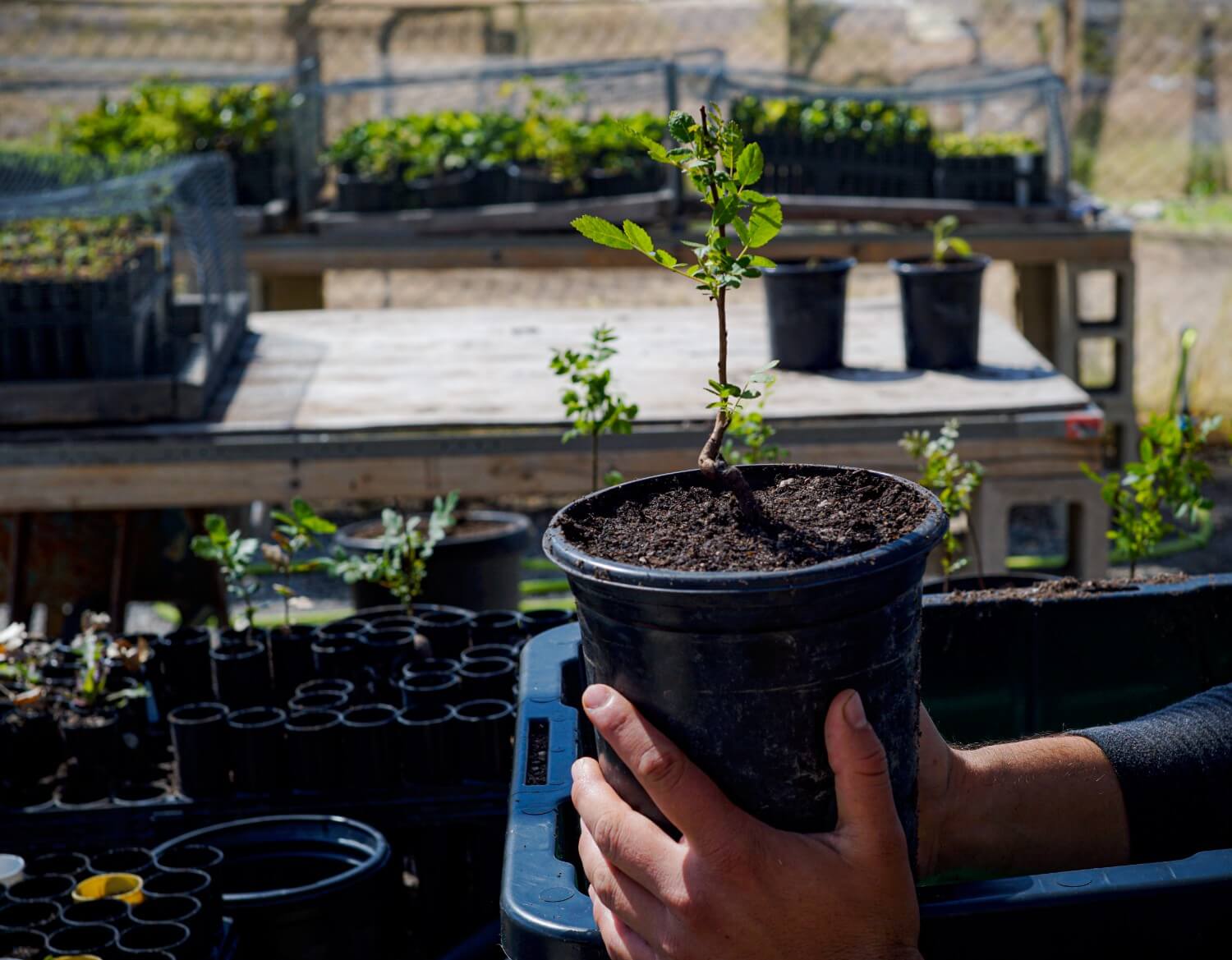
![]()






























